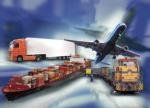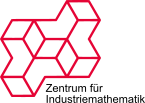Modelling and Analysis of Dynamics of Automatic Control
| Leitung: | Prof. Dr. Sergey Dashkovskiy |
| Bearbeitung: | |
| Projektförderung: | DFG SFB 637 |
| Projektpartner: | |
| Laufzeit: | 01.10.2004 - 30.09.2007 |
 The dynamic and structural complexity of logistical networks is making it increasingly difficult to provide all the information which a central planning and control instance requires to make decisions, and it therefore requires adaptive logistical processes which have an autonomous control capability. Autonomous control here means the decentralised coordination of autonomous logistical objects in a heterarchical organisational structure. The autonomy of the logistical objects such as piece goods, transport equipment and transport systems is made possible as a result of new information and communication technologies such as radio frequency identification (RFID) and wireless communication networks. These and related technologies facilitate and necessitate new control strategies and autonomous, decentralised control systems for logistical processes. The main focus is on aspects such as flexibility, adaptivity and reactivity to dynamically changing external influences while maintaining the global objectives.
The dynamic and structural complexity of logistical networks is making it increasingly difficult to provide all the information which a central planning and control instance requires to make decisions, and it therefore requires adaptive logistical processes which have an autonomous control capability. Autonomous control here means the decentralised coordination of autonomous logistical objects in a heterarchical organisational structure. The autonomy of the logistical objects such as piece goods, transport equipment and transport systems is made possible as a result of new information and communication technologies such as radio frequency identification (RFID) and wireless communication networks. These and related technologies facilitate and necessitate new control strategies and autonomous, decentralised control systems for logistical processes. The main focus is on aspects such as flexibility, adaptivity and reactivity to dynamically changing external influences while maintaining the global objectives.
The aims of the SFB Sub project are the development of models of transport networks and the integration of various autonomous control strategies. On the one hand, it is intended that qualitative statements concerning the behaviour of autonomously controlled transport processes will be obtained which will provide a general understanding of the dynamics which are to be expected. On the other, models will be investigated which provide a good approximation to the system behaviour in order to thus be able to provide a tool for the simulation and specific prediction of the dynamics of transport processes.
From a mathematical point of view, methods of stochastic queuing theory and fluid models as well as systems of differential equations will be used for the abstract representation of the problems considered. This will be used to derive statements concerning the existence of invariant distributions and other stability characteristics.
One stage of the work is to simulate various stochastic models with MATLAB and C/C++ programs which we have developed ourselves. This will ensure, among other things, that the models used do in fact provide a good representation of the problem considered.

